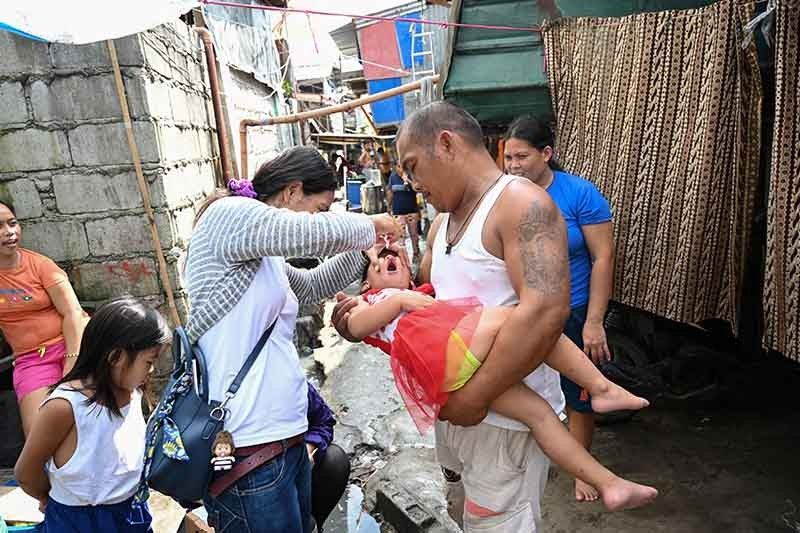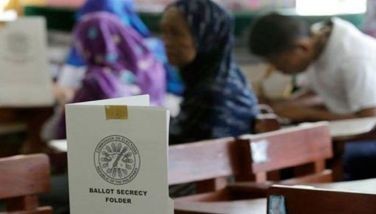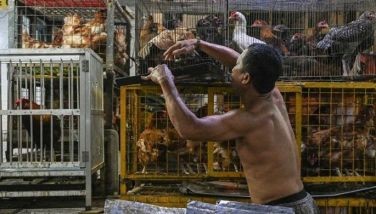Philippines begins mass vaccinations after polio returns

MANILA, Philippines — Parents lined up from sunrise holding sleeping infants as the Philippines launched a campaign on Monday to vaccinate millions of children against polio, which has re-emerged nearly two decades after the nation's last cases.
Years of falling vaccination rates, made worse by the botched rollout of a dengue vaccine, culminated in an outbreak of the preventable disease in September.
"This is for the welfare of my child," Ruth Miranda told AFP after the vaccine was squirted into her child's mouth at the Manila slum they call home.
Miranda's child is among scores who are unprotected in the capital of about 13 million people, where vaccination rates of young children plunged from 77 percent in 2016 to a mere 24 percent in June.
The atmosphere at the event in Manila was festive—with ice cream vendors and music—but the stakes for the campaign are high.
Polio, which can cause paralysis and can be fatal in rare cases, has no cure and can only be prevented with several doses of oral and injectable vaccines.
Two cases were detected in September, the first polio infections in the Philippines since 2001, adding to the woes of a country already hit by deadly measles and dengue epidemic.
The risk of the disease spreading within the Philippines is high, according to World Health Organization, due to low immunization coverage partly blamed to a dengue vaccine scandal.
The Philippines was the first nation to use Dengvaxia in a mass program in 2016, but a botched rollout led to claims that children had died after being vaccinated.
A dramatic drop in vaccine confidence followed, with trust plunging from 93 percent in 2015 to 32 percent in 2018, according to a study led by the London School of Hygiene and Tropical Medicine.
The Philippines polio outbreak has been traced back to the weakened form of the virus used in vaccines, which is excreted by people for a time after they receive it.
According to the WHO, that form can mutate and spread in the surrounding community when immunisation rates get too low.
- Latest
- Trending
































